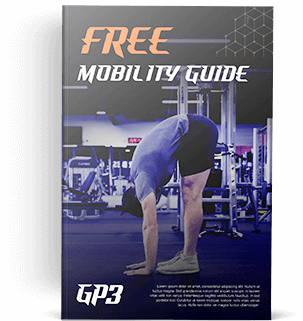Key Points:
- In any pursuit, we often spend far too much time worrying about small details that have sharply diminishing returns.
- Many of us resist the idea that we need to spend more time on the basics and consider doing so “beneath us.”
- Nutrition is one of the worst offenders in this regard.
Estimated reading time: 4-8 minutes
Listen to this article on Spotify!
Zen Master Shunryu Suzuki once said, “In the beginner’s mind, there are many possibilities; in the expert’s mind, there are few.”
With that…in mind…today, I want to talk about a strange phenomenon I see in people all the time when they pursue nutrition goals. This tendency is not limited to eating behavior, and we’re going to talk about how it can negatively affect our overall life satisfaction in other ways during the end of the piece. But for now, we’ll stick to nutrition.
Maybe you’ve heard the phrase “majoring in the minors.” It also goes by the name “perfectionism” or having an “all-or-nothing mindset.” With nutrition, this tendency takes the form of having an overall goal of reducing body fat, but spending time and mental energy worrying about each and every food’s sodium, fiber, Vitamin B, polyphenol, and monounsaturated fat content.
I don’t want to sit here and say that none of these things matter in the pursuit of nutrition goals. But for most people, they matter far less than we might think. Let’s dive into why.
A couple caveats
I’d like to get one thing out of the way. If you work as a professional athlete, elite bodybuilder, or in another field where the appearance and function of your body determines your compensation, you probably do need to concern yourself with every last nutritional detail. The same is true if you suffer from a severe chronic health condition.
But to be frank, that’s not my target audience for this piece. Instead, I’m speaking to people who would like to lose somewhere in the neighborhood of ten to fifty pounds, which is, to use the scientific term, a lot of people. Further, I feel safe in saying that a large percentage of individuals in this category have (in the past) tried to lose weight and seen one of two outcomes:
- Success with losing a significant amount of weight but regained most, all, or even more of it by a year later
- Abandoning their weight loss attempt out of frustration
In both cases, one of the most powerful things one can do is get back to basics. And yet, many of us thoroughly reject the notion that the basics are what we need. We like to think, “Been there, done that. That level of simplicity couldn’t possibly help me anymore.” But, is that true?
On that note, here’s another brilliant quote for you to consider.
One of my favorite sayings from Mark Twain goes like this, “It ain’t what you don’t know that gets you into trouble. It’s what you know for sure that just ain’t so.”
This quotation highlights the need for humility and openness when pursuing any goal. Here’s a quick story on that topic.
I started wholeheartedly pursuing strength training around 2010, and one of my first forays into this realm was through a community called StrongLifts, which basically served as “Intro to Powerlifting 101.” One of the key principles this group followed went something like this. “It doesn’t matter if you’ve spent 20 years working out. If you can’t squat 135 pounds with good form, you’re a beginner.”
While some members initially took this personally, it served as a helpful reminder that we’re never done learning, the basics matter, and your demonstrated proficiency determines the level of challenge you should attempt. Being sure that the nutritional basics are beneath you would be a classic example of what you “know” getting you into trouble.
Here’s a recipe for failure: the concerns of an expert paired with the skills and commitment of a beginner.
While this may sound controversial, I believe that if you have never lost (and kept off) at least 5% of your bodyweight, you’re a nutritional beginner. If you’ve lost significant amounts of weight but not kept it off, you’re an expert in weight loss but a beginner in weight maintenance. Those who have never had to lose significant amounts of weight could be considered experts in weight maintenance but beginners in weight loss.
Regardless of the situation, when someone is a beginner, there are certain levels of skill and commitment we don’t expect. For example, we don’t teach someone how to handle a manual transmission on a steep hill on their first day behind the wheel. Nor do we ask them to concern themselves with which type of tires perform best on a wet racetrack that features tight, high-speed turns.
Worrying about every little micronutrient when your main goal is to lose 10-20 pounds falls into this exact same category. It’s not appropriate for your goal or level of expertise. Further, it requires time and mental energy you’d be better off spending elsewhere. The amount of effort required isn’t worth the potential returns.
Instead, start with or get back to the basics.
People are always surprised at how much progress they can make when they follow these three simple rules.
- Eat only meals, no snacks.
- Drink only non-caloric beverages (water, black coffee, green tea, diet soda, etc.) and make sure you get enough of it.
- Eat a source of protein with every meal.
Do these things consistently, 80% of the time, and you will reach your goals. Everything else is just a distraction.
But wait…it can’t really be that simple, can it?
Well, here are some studies that hopefully set your mind at ease.
Many people worry extensively about not getting enough protein, or losing muscle while in a calorie deficit. Here’s a roundup of a study from the excellent publication Stronger By Science, showing participants gaining muscle while eating only 800 calories per day. Here’s another one showing protein absorption rate doesn’t matter as much as daily protein intake.
The point is, people stress about protein intake all the time. Or they say things like, “I don’t eat fruit because it has too much sugar.” This is allowing details to sidetrack you from the bigger picture. It doesn’t help.
Okay, so how does this apply to life at large?
Well, there’s a funny thing about human beings. We (sort of) get to choose what we’d like to worry about. I say “sort of” because we can’t really control which particular concerns, troubles, or even preferences resonate with us, we can put some conscious effort towards where we devote our mental energy.
To that end, should you stress about microplastics? What about soil regeneration? How about air pollution, water pollution, light pollution, or noise pollution? You absolutely could. Some people will even tell you that you should. But, that’s for you to decide, not me or anyone else.
And there’s undoubtedly value in learning the minimum you can do in order to help with problems like this, or at least not actively and rapidly make them worse. And if you find certain issues particularly compelling and decide to devote serious time, attention, and energy to working on them, that’s great!
But if you don’t plan to change your behavior, you gain nothing from stressing about topics like these. In fact, you probably make yourself worse off by increasing your levels of anxiety and feelings of helplessness. Not too many people tend to thrive when those two things trend upwards.
In the end, perfectionism is the enemy of a happy life. Trying to optimize every little detail can simply become a compelling excuse not to take action. And unless you’re a Zen Master like Mr. Suzuki, practicing non-action in deep meditation, inaction often isn’t the goal, since it comes from a place of paralysis and fear, not openness and love.
In the end, we’re probably best served by heeding the wise words of everyone’s favorite Magic School Bus-driving educator, Ms. Frizzle. “Take chances, make mistakes, and get messy!” That sounds way more fun than worrying about the Vitamin B12 levels in every single bite of your food, right?
Before you go, I’d love to hear from you. Which “little things” do you choose to spend time and energy on? Which do you largely ignore? How has that affected you? Reply to this email and let me know!

